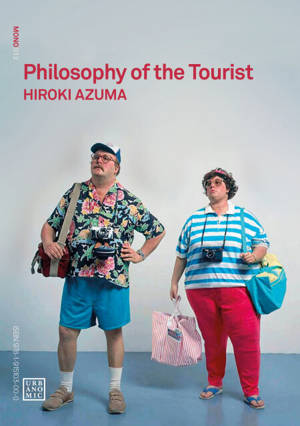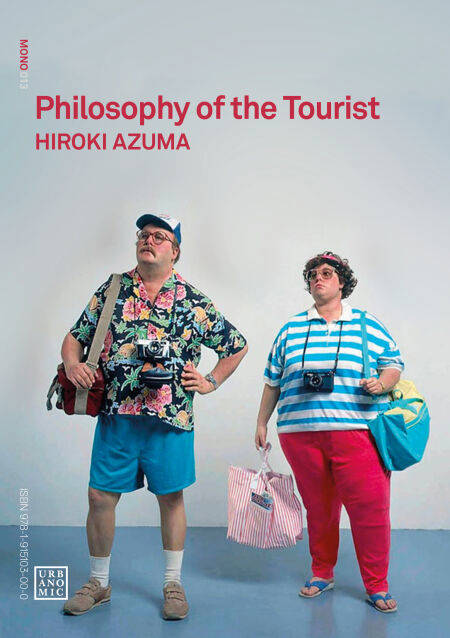
- Retrait gratuit dans votre magasin Club
- 7.000.000 titres dans notre catalogue
- Payer en toute sécurité
- Toujours un magasin près de chez vous
- Retrait gratuit dans votre magasin Club
- 7.000.0000 titres dans notre catalogue
- Payer en toute sécurité
- Toujours un magasin près de chez vous
29,52 €
+ 29 points
Format
Description
An inventive philosophical study that reconsiders the figure of the tourist.
Tourism is a characteristically modern phenomenon, yet modern thinkers have tended to deride the tourist as a figure of homogenizing globalism.
This philosophical study considers the tourist anew, as a subject position that enables us to redraw the map of globalized culture in an era increasingly in revolt against the liberal intellectual worldview and its call for the welcome of the "Other."
Why has the tourist proved so resistant to philosophical treatment, asks Hiroki Azuma. Tracing the reasons for this exclusion through the work of Rousseau and Voltaire, and subsequently in Kant, Carl Schmitt, Alexandre Kojève, Hannah Arendt, and Hardt and Negri, Azuma contends that the figure of the tourist has been rendered illegible by becoming ensnared in a series of misleading conceptual dichotomies and a linear model of world history.
In the widening gap between the infrastructure of globalization and inherited ties of local and national belonging, Azuma’s retheorization of the tourist presents an alternative to the choice between doubling down on local identity and roots, or hoping for the spontaneous uprising of a multitude from within the great networked Empire. For the tourist is the subject capable of moving most freely between the strata of the global and the local.
With explorations of the connection between tourism and fan fiction, contingency and "misdelivery," cyberspace and the uncanny, and dark tourism, Azuma’s inventive and optimistic philosophical essay sheds unexpected new light on a mode of engagement with the world that is familiar to us all.
Tourism is a characteristically modern phenomenon, yet modern thinkers have tended to deride the tourist as a figure of homogenizing globalism.
This philosophical study considers the tourist anew, as a subject position that enables us to redraw the map of globalized culture in an era increasingly in revolt against the liberal intellectual worldview and its call for the welcome of the "Other."
Why has the tourist proved so resistant to philosophical treatment, asks Hiroki Azuma. Tracing the reasons for this exclusion through the work of Rousseau and Voltaire, and subsequently in Kant, Carl Schmitt, Alexandre Kojève, Hannah Arendt, and Hardt and Negri, Azuma contends that the figure of the tourist has been rendered illegible by becoming ensnared in a series of misleading conceptual dichotomies and a linear model of world history.
In the widening gap between the infrastructure of globalization and inherited ties of local and national belonging, Azuma’s retheorization of the tourist presents an alternative to the choice between doubling down on local identity and roots, or hoping for the spontaneous uprising of a multitude from within the great networked Empire. For the tourist is the subject capable of moving most freely between the strata of the global and the local.
With explorations of the connection between tourism and fan fiction, contingency and "misdelivery," cyberspace and the uncanny, and dark tourism, Azuma’s inventive and optimistic philosophical essay sheds unexpected new light on a mode of engagement with the world that is familiar to us all.
Spécifications
Parties prenantes
- Auteur(s) :
- Editeur:
Contenu
- Nombre de pages :
- 400
- Langue:
- Anglais
- Collection :
Caractéristiques
- EAN:
- 9781915103017
- Date de parution :
- 08-05-23
- Format:
- Ebook
- Protection digitale:
- Adobe DRM
- Format numérique:
- ePub

Les avis
Nous publions uniquement les avis qui respectent les conditions requises. Consultez nos conditions pour les avis.






